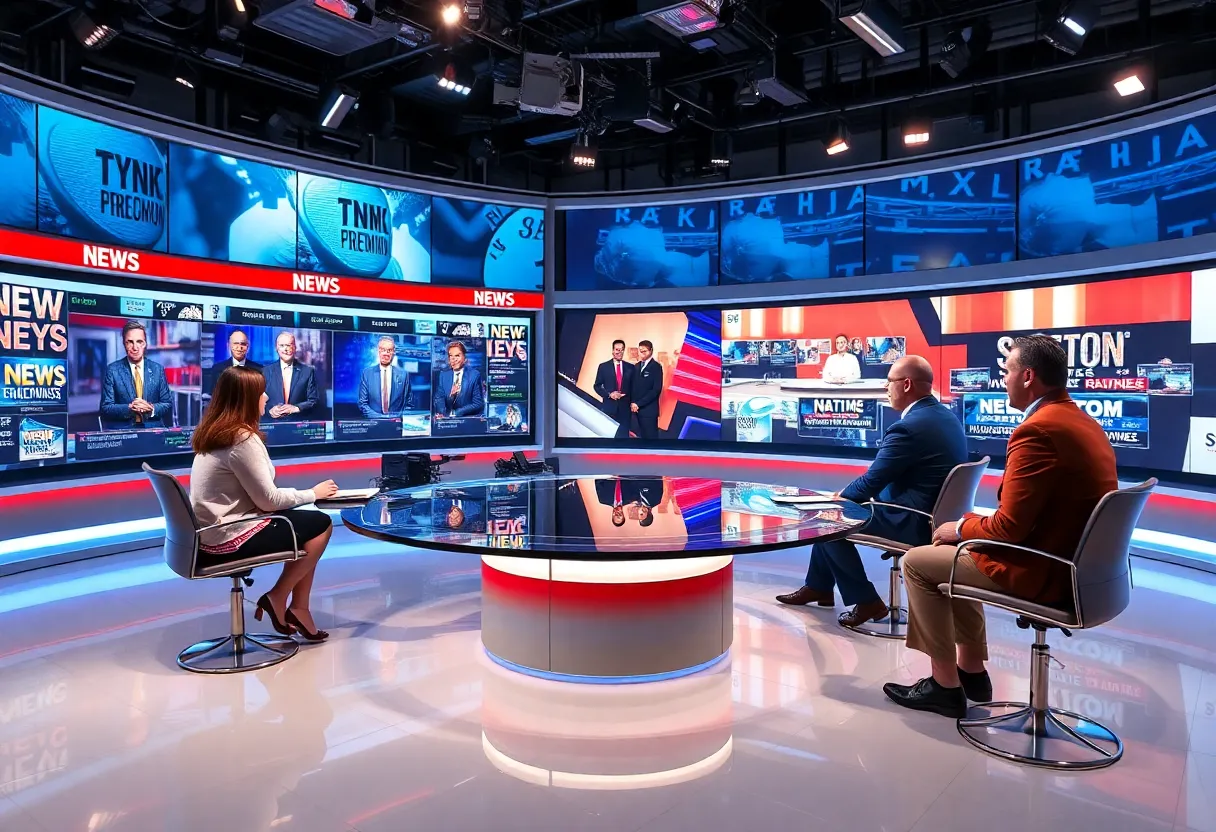News Summary
The FCC has approved an $8 billion merger between Skydance Media and Paramount Global, sparking discussions on media bias and press freedom. This decision comes amid ongoing controversies surrounding CBS and political pressures from the previous administration. Skydance is expected to implement measures to address media bias, while the merger has garnered mixed reactions from both media figures and political critics. As changes loom within CBS, the industry watches closely to see how this affects diverse reporting practices and public trust in the media.
Unfolding Developments in Media: The Skydance and Paramount Merger
The landscape of media got a considerable shake-up when the Federal Communications Commission (FCC) gave the green light to an $8 billion merger between Skydance Media and Paramount Global. This decision, announced on a Thursday, follows a series of debates and inquiries regarding media bias, particularly the spotlight on CBS, one of Paramount’s flagship networks.
Media Bias Concerns in the Spotlight
At the heart of the discussions around the merger are longstanding concerns over media bias. Notably, the previous administration, under Trump, raised alarms about the alleged slant in CBS broadcasts. The FCC Chair highlighted these worries while announcing the merger’s approval, emphasizing that a commitment from Skydance to address these biases was pivotal in the decision-making process.
An interesting commitment made by Skydance entails implementing measures intended to tackle and “root out” any perceived bias, particularly regarding CBS’s news coverage. The goal is to restore public trust and promote a diversity of viewpoints across its programming. This wasn’t just a casual promise; it signaled their readiness to embrace accountability in a landscape often criticized for lack of impartiality.
Political Controversies and Fallout
As often happens in today’s media landscape, the news was not without controversy. The merger has become a political hot potato, with critics questioning the implications it has for press freedom and government influence. For example, Democrats called attention to how swiftly the approval followed a high-profile settlement from Trump’s lawsuit against CBS, arguing it showcases a troubling capitulation to pressures from the previous administration.
The settlement for that lawsuit, which involved allegations of biased editing during a “60 Minutes” interview with Kamala Harris, has loomed large over the discussions. As if in response, the FCC is also undertaking a separate investigation into this editing incident to ensure accountability in the media.
Commissions and Dissent
The vote among FCC commissioners to approve the merger was a narrow one, passing by a 2-1 margin. While two commissioners were all for it, one voiced strong objections, linking the conditions of the approval to the contentious political climate and previous legal battles. This dissent signals deeper debates about the integrity of media practices moving forward.
Shifting Media Practices
Adding another layer to this narrative are reports that Skydance will abolish its diversity, equity, and inclusion (DEI) initiatives as part of the merger’s future framework. This has left many wondering about the potential fallout within the industry and among existing staff members at CBS. With changes on the horizon, the atmosphere across CBS seems more uncertain—although some, like veteran producer Tanya Simon’s recent promotion to executive producer of “60 Minutes,” is seen as a hopeful move for stability.
The Response from Media Figures
The media community isn’t sitting by quietly. Influential voices from various programs have expressed their skepticism and outrage regarding what this deal might mean for our future news landscape, with some programs even launching critiques that delve into Trump’s perceived influence over the media following developments in recent months.
As viewers, we cannot ignore that this merger could mark an era where larger corporations, driven by economic interests, hold sway over what we see, hear, and understand about the world. The effects on press freedom and diverse reporting practices will be critical to watch in the months ahead.
Looking Ahead
The approval of the Skydance and Paramount merger is just the start of what promises to be a fascinating chapter in media history. With ongoing investigations, the staff’s concerns, and a highly charged political environment, this merger feels like a checkpoint in the ever-evolving story of how news is delivered and consumed. It’s safe to say that audiences, industry insiders, and political figures alike will keep a vigilant eye on how this plays out. After all, in the world of media, one thing is for sure: it’s never a dull moment!
Deeper Dive: News & Info About This Topic

Author: STAFF HERE LOS ANGELES WRITER
The LOS ANGELES STAFF WRITER represents the experienced team at HERELosAngeles.com, your go-to source for actionable local news and information in Los Angeles, Los Angeles County, and beyond, specializing in "news you can use" with coverage of product reviews for personal and business needs, local business directories, politics, real estate trends, neighborhood insights, and state news affecting the area—with deep expertise from years of dedicated reporting and strong community input, including local press releases and business updates, while delivering top reporting on high-value events like the Academy Awards, LA Auto Show, and Los Angeles Marathon, extending coverage to key organizations such as the Los Angeles Area Chamber of Commerce and the Los Angeles Tourism & Convention Board, plus leading businesses in entertainment and technology like Warner Bros. and SpaceX, and as part of the broader HERE network including HEREAnaheim.com , HERECostaMesa.com , HEREHuntingtonBeach.com , and HERESantaAna.com , providing comprehensive, credible insights into Southern California's dynamic landscape. HERE Anaheim HERE Beverly Hills HERE Coronado HERE Costa Mesa HERE Hollywood HERE Huntington Beach HERE Long Beach HERE Los Angeles HERE Mission Viejo HERE San Diego HERE Santa Ana





